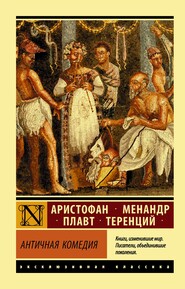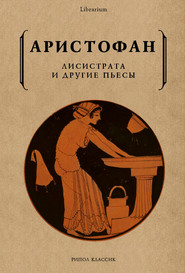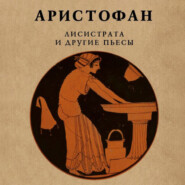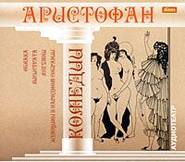По всем вопросам обращайтесь на: info@litportal.ru
(©) 2003-2024.
✖
The Eleven Comedies, Volume 1
Автор
Год написания книги
2018
Настройки чтения
Размер шрифта
Высота строк
Поля
480
Derived from [Greek: pheidesthai], to save.
481
The name Phidippides contains both words, [Greek: hippos], horse, and [Greek: pheidesthai], to save, and was therefore a compromise arrived at between the two parents.
482
The heads of the family of the Alcmaeonidae bore the name of Megacles from generation to generation.
483
A mountain in Attica.
484
Aristophanes represents everything belonging to Socrates as being mean, even down to his dwelling.
485
Crates ascribes the same doctrine in one of his plays to the Pythagorean Hippo, of Samos.
486
This is pure calumny. Socrates accepted no payment.
487
Here the poet confounds Socrates' disciples with the Stoics. Contrary to the text, Socrates held that a man should care for his bodily health.
488
One of Socrates' pupils.
489
Female footwear. They were a sort of light slipper and white in colour.
490
He calls off their attention by pretending to show them a geometrical problem and seizes the opportunity to steal something for supper. The young men who gathered together in the palaestra, or gymnastic school, were wont there to offer sacrifices to the gods before beginning the exercises. The offerings consisted of smaller victims, such as lambs, fowl, geese, etc., and the flesh afterwards was used for their meal (vide Plato in the 'Lysias'). It is known that Socrates taught wherever he might happen to be, in the palaestra as well as elsewhere.
491
The first of the seven sages, born at Miletus.
492
Because of their wretched appearance. The Laconians, blockaded in Sphacteria, had suffered sorely from famine.
493
In fact, this was one of the chief accusations brought against Socrates by Miletus and Anytus; he was reproached for probing into the mysteries of nature.
494
When the Athenians captured a town, they divided its lands by lot among the poorer Athenian citizens.
495
An allusion to the Athenian love of law-suits and litigation.
496
When originally conquered by Pericles, the island of Euboea, off the coasts of Boeotia and Attica, had been treated with extreme harshness.
497
Is about to add, "you believe in them at all," but checks himself.
498
This was the doctrine of Anaximenes.
499
The scholiast explains that water-cress robs all plants that grow in its vicinity of their moisture and that they consequently soon wither and die.
500
In the other Greek towns, the smaller coins were of copper.
501
Athamas, King of Thebes. An allusion to a tragedy by Sophocles, in which Athamas is dragged before the altar of Zeus with his head circled with a chaplet, to be there sacrificed; he is, however, saved by Heracles.
502
No doubt Socrates sprinkled flour over the head of Strepsiades in the same manner as was done with the sacrificial victims.
503
The mysteries of Eleusis celebrated in the Temple of Demeter.
504
A mountain of Attica, north of Athens.











